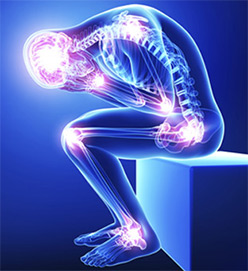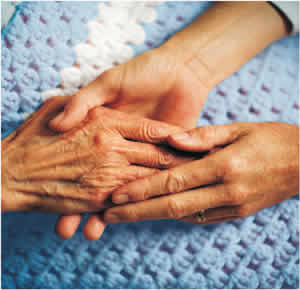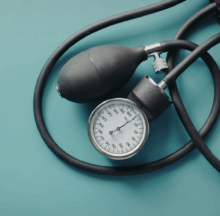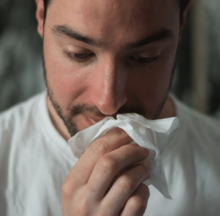Featured Article: Customized Medications for Children: Turning Yuck to Yum!
 Children pose multiple challenges when it comes to medicine. For children who don’t like the taste, color, or texture of their medication, or who have food allergies and specific dietary needs, we can compound customized medications to please! We can also help children with Sensory Processing Disorder (SPD) which often accompanies developmental disorders such as autism, fragile X syndrome, and attention-deficit hyperactivity disorder (ADHD). The sensation of taste and texture in the mouth may trigger negative responses in children with SPD and can produce gagging, vomiting, and screaming, which obviously make it difficult to take medication as prescribed.
Children pose multiple challenges when it comes to medicine. For children who don’t like the taste, color, or texture of their medication, or who have food allergies and specific dietary needs, we can compound customized medications to please! We can also help children with Sensory Processing Disorder (SPD) which often accompanies developmental disorders such as autism, fragile X syndrome, and attention-deficit hyperactivity disorder (ADHD). The sensation of taste and texture in the mouth may trigger negative responses in children with SPD and can produce gagging, vomiting, and screaming, which obviously make it difficult to take medication as prescribed.
Large pharmaceutical companies don’t manufacture medications in multiple strengths, flavors, and dosage forms. But as compounders, customizing medications is what we do! When commercially available options are exhausted or just can’t be used, our compounding pharmacist can usually offer a solution, and sometimes reduce side effects or improve the outcome or therapy.
Our compounding pharmacy is here to meet each child’s specific needs. We have specialized training and equipment not found in most pharmacies and will work together with patients, their family or caregivers, and doctors to solve medication problems. We can compound flavored suspensions, gummies, or lollipops. Often, caregivers prefer topical or transdermal creams or gels that eliminate the need to administer medication orally. Let us know how we can help. Your questions are welcome.
Reference: Children 2019; 6:66. doi:10.3390/children6050066
Treating Fibromyalgia and Autoimmune Diseases
 Fibromyalgia – also known as fibrositis or fibromyositis – is a chronic pain disorder that causes lasting and sometimes debilitating muscle pain, fatigue, sleep disturbance and cognitive impairment. No one knows exactly what causes it, but it may be triggered by injuries, emotional trauma, or viral infections. Although symptoms of fibromyalgia resemble those of some autoimmune diseases, fibromyalgia does not appear to be caused by autoimmune factors. Fibromyalgia can be difficult to diagnose. It can take 5 years for the average person with the condition to finally get a diagnosis. As many as three out of every four people with fibromyalgia remain undiagnosed. And, once diagnosed, a significant number of patients do not respond adequately to drugs that are currently FDA-approved for treatment of fibromyalgia.
Fibromyalgia – also known as fibrositis or fibromyositis – is a chronic pain disorder that causes lasting and sometimes debilitating muscle pain, fatigue, sleep disturbance and cognitive impairment. No one knows exactly what causes it, but it may be triggered by injuries, emotional trauma, or viral infections. Although symptoms of fibromyalgia resemble those of some autoimmune diseases, fibromyalgia does not appear to be caused by autoimmune factors. Fibromyalgia can be difficult to diagnose. It can take 5 years for the average person with the condition to finally get a diagnosis. As many as three out of every four people with fibromyalgia remain undiagnosed. And, once diagnosed, a significant number of patients do not respond adequately to drugs that are currently FDA-approved for treatment of fibromyalgia.
Autoimmune diseases such as Rheumatoid Arthritis, Inflammatory Bowel Disease, Multiple Sclerosis and Hashimoto’s Thyroiditis occur when a person’s immune system begins producing antibodies that attack and damage the body’s own tissues instead of fighting infection. Research is revealing new treatments that may reduce various inflammatory autoimmune processes and provide relief from symptoms of these conditions.
Our compounding pharmacists can help patients dealing with fibromyalgia and autoimmune disorders. Talk to us today about customized medications to treat problems that have not responded to commercially available drugs.
Autoimmune Disorders
 There are more than 80 types of autoimmune conditions, which occur when the body’s immune system attacks and destroys healthy body tissue by mistake. Common autoimmune disorders include:
There are more than 80 types of autoimmune conditions, which occur when the body’s immune system attacks and destroys healthy body tissue by mistake. Common autoimmune disorders include:
- Fibromyalgia
- Chronic fatigue syndrome
- Celiac disease / sprue
- Hashimoto’s thyroiditis
- Multiple sclerosis
- Myasthenia gravis
- Rheumatoid arthritis
- Sjögren syndrome
- Systemic lupus erythematosus
Diet plays a big part in worsening or improving these conditions. When you eat pro-inflammatory foods – for instance, sugar and flour – you can exacerbate inflammation, the core feature of all autoimmune disorders. Unhealthy foods can also worsen intestinal permeability (“leaky” gut), throw your hormones out of balance, and lead to severe nutritional deficiencies – all of which can worsen the symptoms of an autoimmune disease.
Our pharmacist can provide multiple forms of help for people with autoimmune disorders, depending on the cause. Ask us about:
- the potential benefits of restoring hormone balance.
- professional quality nutritional and herbal supplements that can improve immune function.
- customized medications that can relieve symptoms that have not responded to commercially available drugs.
Compounding – Customizing Medicine for your Unique Needs
 You are unique. Of all the billions of people in the world, there is no one else exactly like you. This means that sometimes commercially manufactured medications may not be the best fit for you. In order to be profitable, drug manufacturers only mass produce medications in the most popular doses and dosage forms. Unfortunately, the best strength, flavor, or dosage form for YOU, may not be what is most popular. So, what can you do if:
You are unique. Of all the billions of people in the world, there is no one else exactly like you. This means that sometimes commercially manufactured medications may not be the best fit for you. In order to be profitable, drug manufacturers only mass produce medications in the most popular doses and dosage forms. Unfortunately, the best strength, flavor, or dosage form for YOU, may not be what is most popular. So, what can you do if:
- commercially available medications are simply not working for you?
- medication is not available in the strength or flavor that is optimal for you?
- you are allergic to lactose, dyes, or gluten or have concerns with preservatives, alcohol or sugar in your medication?
- a medication that works well for you is unavailable?
- you are concerned about or are unable to take a medication due to side effects?
- you have nausea or trouble swallowing which makes it difficult to take your oral medicine?
We can help by compounding a medication for your specific needs. Compounding is the preparation of a customized medication to solve a problem or meet a specific patient need. Our pharmacy staff is specially trained in the art of compounding. We use the finest ingredients from an FDA-inspected and approved supplier, and our laboratory contains precision equipment (such as an ointment mill and capsule machine) that is not found in most pharmacies, enabling us to compound each medication to exact specifications. Using a team approach, we will work with you and your doctor/practitioner to solve your medication problems.
Hormone Therapy for Women
 As a woman ages, her body produces decreasing amounts of hormones such as estrogen, progesterone, and testosterone. Hot flashes, sleeplessness, night sweats, vaginal dryness, mood swings, loss of libido, fatigue, difficulty concentrating, and weight gain are all symptoms caused by these declining levels and resulting hormone imbalance. Hormones also help to protect women from diseases such as osteoporosis, colorectal cancer and heart disease, so as hormone levels decrease there is a greater risk of developing these diseases as well.The good news is that with Hormone Therapy we can replace the hormones your body is no longer naturally producing due to aging or illness. There is a lot of information available about hormone replacement therapy, and navigating through the sea of data can be extremely confusing, but we are here to help! We compound customized hormone therapy using hormones that are chemically identical to those your body naturally produces. This is important because hormones fit in receptor sites like a key in a lock. Synthetic hormones (like medroxyprogesterone acetate) and those derived from pregnant mares’ urine (like conjugated estrogens) are not chemically identical to those the body naturally produces so they do not exactly fit the receptors. As these hormones are metabolized (used by the body), the metabolites that result are not normally present in the human body, and this can lead to side effects.After a complete evaluation of your signs and symptoms, medical history, and assessment of your current hormone levels, we will work with you and your doctor or other healthcare provider to develop a customized plan for replacement of your deficient hormones in the most appropriate strength and dosage form. Then, we will monitor and tweak your therapy until you achieve hormone balance and symptoms are relieved. Customized hormone therapy has improved the quality of life for millions of women. As us how we can help you.
As a woman ages, her body produces decreasing amounts of hormones such as estrogen, progesterone, and testosterone. Hot flashes, sleeplessness, night sweats, vaginal dryness, mood swings, loss of libido, fatigue, difficulty concentrating, and weight gain are all symptoms caused by these declining levels and resulting hormone imbalance. Hormones also help to protect women from diseases such as osteoporosis, colorectal cancer and heart disease, so as hormone levels decrease there is a greater risk of developing these diseases as well.The good news is that with Hormone Therapy we can replace the hormones your body is no longer naturally producing due to aging or illness. There is a lot of information available about hormone replacement therapy, and navigating through the sea of data can be extremely confusing, but we are here to help! We compound customized hormone therapy using hormones that are chemically identical to those your body naturally produces. This is important because hormones fit in receptor sites like a key in a lock. Synthetic hormones (like medroxyprogesterone acetate) and those derived from pregnant mares’ urine (like conjugated estrogens) are not chemically identical to those the body naturally produces so they do not exactly fit the receptors. As these hormones are metabolized (used by the body), the metabolites that result are not normally present in the human body, and this can lead to side effects.After a complete evaluation of your signs and symptoms, medical history, and assessment of your current hormone levels, we will work with you and your doctor or other healthcare provider to develop a customized plan for replacement of your deficient hormones in the most appropriate strength and dosage form. Then, we will monitor and tweak your therapy until you achieve hormone balance and symptoms are relieved. Customized hormone therapy has improved the quality of life for millions of women. As us how we can help you.
Men’s Health: Restoring Vitality
 Beginning at approximately 40 years of age, a man’s testosterone levels slowly decline. Approximately 30% of men aged 60-70 years and 70% of men aged 70-80 have low levels of testosterone, a condition often called “andropause” because testosterone is in a class of hormones known as androgens. Androgen deficiency is strongly associated with common medical conditions including metabolic syndrome, obesity, diabetes, hypertension and atherosclerosis; as well as elevations in triglycerides (TGs), total cholesterol (TC), and low-density lipoprotein cholesterol (LDL-C). Androgens may provide a protective effect against the development and/or progression of atherosclerosis in men, and emerging evidence indicates that appropriate therapy can relieve or partially reverse the progression of these problems in testosterone-deficient men.
Beginning at approximately 40 years of age, a man’s testosterone levels slowly decline. Approximately 30% of men aged 60-70 years and 70% of men aged 70-80 have low levels of testosterone, a condition often called “andropause” because testosterone is in a class of hormones known as androgens. Androgen deficiency is strongly associated with common medical conditions including metabolic syndrome, obesity, diabetes, hypertension and atherosclerosis; as well as elevations in triglycerides (TGs), total cholesterol (TC), and low-density lipoprotein cholesterol (LDL-C). Androgens may provide a protective effect against the development and/or progression of atherosclerosis in men, and emerging evidence indicates that appropriate therapy can relieve or partially reverse the progression of these problems in testosterone-deficient men.
Hypogonadism is the clinical term for low levels of serum testosterone in association with specific signs and symptoms, including:
- diminished sex drive and sense of vitality
- erectile dysfunction
- depression
- anemia
- heart disease or worsening lipid profile
- reduced muscle mass and bone density
- increased fat mass
- frailty
- osteoporosis
Testosterone levels can be measured by saliva or blood tests. Hormone therapy is recommended for men with symptoms of hypogonadism and low total testosterone levels or high estrogen levels.
Depressed men have been found to have significantly lower bioavailable (free; able to be used by the body) testosterone levels, perhaps because an associated decrease in sexual function results in depression, irritability, and mood swings. Testosterone therapy may improve depressed mood in older men who have low levels of bioavailable testosterone.
Osteoporosis-related fractures occur in 12% of all men over 50 years of age. Twenty-five percent of all hip fractures occur in men, and 33% of these patients die within one year of fracture. Gradual loss of testosterone is one of the major causes of osteoporosis in elderly men. Studies have reported beneficial effects of testosterone therapy in older men, showing an increase in bone mineral density (BMD) and slowing of bone degeneration. Testosterone therapy in older men with low serum testosterone levels also increases lean body mass and decreases fat mass, improving physical performance and strength.
Testosterone replacement therapy (TRT) has relieved symptoms and improved the quality of life for many men. TRT is well tolerated. Laboratory values and clinical response should be monitored frequently so that any necessary adjustments can be made. A recent study found that TRT was associated with beneficial effects on insulin resistance, cardiovascular risk factors (total and LDL-cholesterol, Lipoprotein-a), and symptoms in hypogonadal men with type 2 diabetes and/or metabolic syndrome.
By administering testosterone transdermally (through the skin) in a cream or gel, adequate amounts of testosterone can be absorbed to mimic the normal daily production. Testosterone can also be administered as a sublingual drop or a lozenge that dissolves in the mouth. Compounded preparations can be very advantageous because customized therapies increase compliance.
- the specific dose of hormone(s) needed by each man can be compounded as a dosage form that is most appropriate for the individual.
- there is no need to shave the scrotum to apply a patch and there is no skin irritation from patch adhesive.
A healthy lifestyle is associated with higher hormone levels, and higher hormone levels seem to induce a more active, healthier lifestyle. For optimal results, it is vital that hormone replacement therapy be combined with adequate exercise, proper nutrition, and appropriate use of supplements.
The presence of prostate or breast cancer is an absolute contraindication for androgen replacement therapy. Guidelines recommend that TRT should not be initiated in older men with PSA serum levels above the normal range. Testosterone should be used with caution in men with severe heart, kidney or liver disease, increased red blood cell counts, and sleep apnea.
Individualized Pain Management
 Chronic pain can be the result of various problems such as back injury, fibromyalgia, cancer, diabetic neuropathy, arthritis, Complex Regional Pain Syndrome, vulvodynia and amputation (phantom limb pain). Since the source of chronic pain is often quite complex, it can be very difficult to treat and may not respond to commercially available medications. Consequently, many people continue to suffer from unrelieved pain and/or endure side effects from high doses of drugs taken to relieve that pain.
Chronic pain can be the result of various problems such as back injury, fibromyalgia, cancer, diabetic neuropathy, arthritis, Complex Regional Pain Syndrome, vulvodynia and amputation (phantom limb pain). Since the source of chronic pain is often quite complex, it can be very difficult to treat and may not respond to commercially available medications. Consequently, many people continue to suffer from unrelieved pain and/or endure side effects from high doses of drugs taken to relieve that pain.
Our ability to compound customized medications opens up a whole new realm of possible solutions for our patients’ medication problems. Do you remember the first time you discovered that instead of just using the standard 8 colors of crayons, you could get 64 crayons in a whole rainbow of colors? Compounding is like that. Instead of being restricted to using commercially manufactured medications that are only available in a limited number of strengths and dosage forms, our compounding pharmacists can offer a vast array of options prepared specifically to meet your needs.
Pain management is best achieved with a team approach and often requires a combination of drugs that work in different ways to relieve pain. Transdermal gels or creams are often beneficial when oral medications don’t work. Transdermal medications often have fewer side effects than when the same drugs is taken by some other route (i.e. orally, by injection, rectally, etc.). Suppositories may also be helpful for patients with pain who also have nausea and/or vomiting, or are unable to take food or medicine by mouth.
We work together with patients and their healthcare provider to customize individualized treatments to relieve chronic pain.
Chronic Stress and Adrenal Dysfunction
 “The most wonderful time of the year” may unfortunately become “the most stressful time of the year” for many people. Societal expectations, family obligations, job pressures, and economic hardship can result in stress, and if that stress becomes chronic, it can result in Adrenal Dysfunction and ultimately lead to:
“The most wonderful time of the year” may unfortunately become “the most stressful time of the year” for many people. Societal expectations, family obligations, job pressures, and economic hardship can result in stress, and if that stress becomes chronic, it can result in Adrenal Dysfunction and ultimately lead to:
- Mood disorders and depression
- Increased risk of neurodegenerative diseases
- Osteoporosis
- Dementia/memory loss
- Sleep disorders
- Insulin resistance/diabetes
- Reproductive disorders
- Premature aging
The adrenal glands are involved in the “fight or flight” response. One of the body’s initial responses to fear or stress is the release of hormones such as epinephrine (adrenaline) and cortisol that initially help us to react or adapt to a stressful situation. Cortisol raises blood sugar and blood pressure, and increases the breakdown of protein while inhibiting protein synthesis. Cortisol interferes with thyroid hormone action and stimulates visceral fat deposition, which can lead to metabolic syndrome. Medical literature has confirmed the correlation between high levels of cortisol secondary to chronic stress (hypercortisolism) and disease development, including:
- Cardiovascular disease
- Immune suppression
- Impaired thyroid function
- Decreased kidney function
- Exacerbation of skin conditions (acne, psoriasis, eczema)
- Gastrointestinal problems (GERD, Irritable Bowel Syndrome)
Over time, the body may no longer be able to produce the needed amounts of cortisol and patients can ultimately end up with low cortisol levels (hypocortisolism).
Factors which influence the development and progression of adrenal dysfunction:
- Duration and severity of stress
- Previous exposure to chronic stressors
- Individual coping mechanisms
- Gender (females are more likely to develop adrenal dysfunction than males)
- Personality (introversion)
- Low self-esteem
Treatment of Adrenal Dysfunction
- Stress reduction techniques –Gentle exercise, Tai Chi, yoga, Pilates, meditation
- Sleep hygiene – Regular sleep-wake cycle, avoid third shift work. The following supplements may be helpful: 5-HTP, Melatonin, Phosphatidylserine, L-Theanine, Calming herbs (Valerian root, Chamomile, Hops, Passion flower)
- Lifestyle modification – Delegating responsibilities to eliminate stressors, regular meals, avoid caffeine and alcohol
- Vitamins and minerals – Magnesium Glycinate or Citrate, B Vitamins, selenium, zinc, calcium, manganese, Vitamin E with mixed tocopherols, Vitamin C (Ascorbate)
- Adaptogens – Ashwaganda, Rhodiola, Holy Basil
- Pharmacologic therapy – Low doses of hydrocortisone (by prescription, and closely monitored) have been found to help when the body fails to produce sufficient amounts of cortisol.
Our pharmacist will work together with patients and their physicians to customize therapy for adrenal dysfunction.
Compounding for Sports Medicine
 Whether you are a weekend warrior or a professional athlete, we can help keep you on top of your game! Our compounding pharmacy customized medications for problems that are often unresponsive to conventional therapy, such as:
Whether you are a weekend warrior or a professional athlete, we can help keep you on top of your game! Our compounding pharmacy customized medications for problems that are often unresponsive to conventional therapy, such as:
- Athletes Foot
- Excessive Perspiration
- Fungal Infections
- Hemorrhoids
- Muscle aches
- Acute or Chronic Pain
- Sprains
Medications which relieve pain and inflammation often have side effects, such as drowsiness, that are especially problematic for an athlete. We can compound medications in topical dosage forms using special bases (creams and gels) that are absorbed through the skin and provide relief directly at the application site while reducing undesirable effects such as drowsiness that can hamper your performance.
Do you ache after the game? We can compound pregame rubs that contain anti-spasmodic drugs and moisturizers that can improve healing. For catchers and others who are often in a squatting position, hemorrhoids can be an uncomfortable problem. Ask us about “rectal rockets” which are great for the treatment of hemorrhoids!
Proper nutrition is essential for energy, stamina, optimal performance, and wound healing and while there are many references regarding the value of certain supplements, the choice of formulation is equally important and often not addressed. We carefully select the finest quality vitamins, minerals, and supplements for our patients.
Don’t let a sports injury or problem sideline you! Bring us your medication problems and let us put you on track to a healthier life.
Compounding for Pets

Do you:
- Have difficulty “coaxing” your pet to take his medicine?
- Need a medication that is not available in the strength, flavor or size that is best for your pet?
- Dream about a unique delivery system (one that allows you to avoid teeth and claws!)?
Humans aren’t the only ones who have unique medication needs; we compound for pets as well! Compounding for animals is a very specialized field requiring extensive training, equipment, and chemicals not found in traditional pharmacies. Our advanced training enables us to provide solutions to difficult animal medication problems.
When your pet enjoys the taste of his medication, that solves many battles. We flavor medicines that are appealing to animals such as fish or tuna flavor for cats, beef or liver for dogs, tutti fruitti for birds, banana for exotics. We can combine several medications into a single convenient preparation. We can also prepare the medication in a different form such as a transdermal gel that can easily be rubbed into the inside of your pet’s ear. This is a great option for animals that should not be stressed and owners who don’t like to be bandaged! Sometimes a novel delivery system like accordion-like puffers for applying powder to difficult-to-reach areas or dauber bottles for painting medication on a hoof is required. We are trained to think outside the box, and so have many unique solutions to offer.
Sometimes a medicine is discontinued or unavailable in the strength or dose that is best for your particular animal. We can solve those problems as well! Using the finest chemicals and special compounding equipment, we can prepare a medication in just the right strength, size and form for your pet.
Our pharmacists work with pet owners and veterinarians to compound medications, by prescription, to meet the unique needs of your furry and feathered friends.
Compounding for Palliative Care/Hospice
 Palliative care is treatment provided to patients who have chronic disease (such as COPD) or terminal illness (such as cancer) and is intended to improve the quality of life, but not cure the disease. This treatment is best provided by a team of specialists that may include doctors, nurses, social workers, clergy, nutritionists and pharmacists. As a compounding pharmacy, we have resources not available at traditional pharmacies, so we’re not limited to a one-size-fits-all solution.
Palliative care is treatment provided to patients who have chronic disease (such as COPD) or terminal illness (such as cancer) and is intended to improve the quality of life, but not cure the disease. This treatment is best provided by a team of specialists that may include doctors, nurses, social workers, clergy, nutritionists and pharmacists. As a compounding pharmacy, we have resources not available at traditional pharmacies, so we’re not limited to a one-size-fits-all solution.
It is important to customize treatment for each patient since diseases vary and patient response to treatments varies. Palliative care aims to relieve and manage symptoms such as nausea & vomiting, pain, dry mouth & stomatitis, wound care, fatigue, loss of appetite, radiation mucositis, constipation and shortness of breath without causing unwanted side effects such as drowsiness, GI upset and constipation.
Here are some examples of what we can do:
- If a patient is unable to swallow medications or is nauseous, we can compound the needed medication into a different dosage form such as a transdermal gel that allows medication to be absorbed through the skin, suppository, troche that is placed between the cheek and gum and absorbed through the blood vessels under the tongue, lozenge, lollipop, or freezer pop.
- When a medication is only commercially available in an oral or injectable form, we can often compound the medicine in an alternate dosage form such as a transdermal gel, which can avoid the need for an IV or injections.
- We can combine compatible drugs into a single dosage form to make it simpler and easier to manage medications.
- Pressure sores (decubitus ulcers) can be very difficult to manage. We will work with your doctor to prepare the best formulation for you, to relieve pain and speed healing.
- When a patient is unable to tolerate the taste of a medication, we can flavor oral preparations specifically for each patient. Coffee, root beer, watermelon, and margarita are just a few of the choices!
- If a patient is suffering from dry mouth (common after head and/or neck radiation), or has mouth tenderness or infections, we can compound medicated dosage forms which may enable the patient to enjoy eating again.
- Wound odor can be extremely embarrassing for patients. We can compound topical preparations to eliminate odor.
We know that life can be very challenging for those suffering from chronic illness and their families and caregivers, but adding the resources of our compounding pharmacy to your arsenal opens a whole new world of treatment options allowing the patient to live life more comfortably. Ask us about becoming a member of your Palliative Treatment Team.
Working With Your Dentist to Optimize Your Oral Health
 Do you have a dental problem that has not responded to traditional treatment? Perhaps you suffer from an extremely sensitive gag reflex that prevents thorough oral hygiene at home and makes dental visits particularly difficult. Or maybe you are experiencing dry mouth, oral ulcers, mouth tenderness, or infections (stomatitis or mucositis) after chemotherapy and/or radiation. Are you continually battling canker sores, or do you have TMJ problems or Burning Mouth Syndrome? If so, we have good news for you!
Do you have a dental problem that has not responded to traditional treatment? Perhaps you suffer from an extremely sensitive gag reflex that prevents thorough oral hygiene at home and makes dental visits particularly difficult. Or maybe you are experiencing dry mouth, oral ulcers, mouth tenderness, or infections (stomatitis or mucositis) after chemotherapy and/or radiation. Are you continually battling canker sores, or do you have TMJ problems or Burning Mouth Syndrome? If so, we have good news for you!
Each patient is unique and some do not find relief or have side effects with traditional medications. Sadly, many patients mistakenly believe that they have no viable options and so they continue to suffer needlessly. For these individuals, a compounding pharmacist can be a lifesaver. Compounders differ from traditional pharmacists because they have special equipment and have received extensive additional education and training in the art of compounding which allows them to offer you unique solutions.
Here are some solutions we’ve developed for dentists and patients:
- Lip balms for cold sores (herpes) and other viral lesions
- Transdermal (applied to the skin) muscle relaxants/pain relievers
- Topical anesthetics
- Transdermal anti-nausea medications
- Medicated lollipops for oral thrush
- Mouth rinses for canker sores (aphthous ulcers)
- Lozenges or rinses to relieve mucositis caused by radiation or chemotherapy
- Medicated “mucosal bandage” to cover ulcerated, infected or tender mouth tissue
- Mouthrinse to minimize oral bleeding during dental procedures for patients who take anticoagulants
- Lozenges to suppress the gag reflex
Call us with your questions and medication problems. We will partner with your dentist to help you and your smile!




















